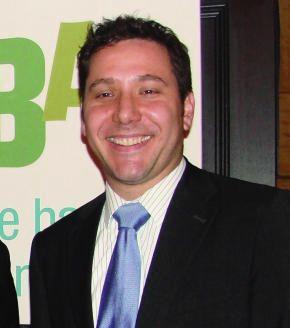Tirso Tromp, Aruba’s Director of Tourism for Europe

Tirso Tromp, Aruba’s Director of Tourism for Europe
By Jose Carlos de Santiago
Aruba, located in the southern Caribbean Sea and near Venezuela, churns out most of its Gross Domestic Product (GDP) with tourism. In 2011, the island has carried out an action and investment program to improve the quality of its touristic product, in terms of hotels and air facilities as well as the restoration of colonial buildings in Oranjestad and the promotion of the country in markets overseas.
After one year in this position, what can you tell us about how the communication is being managed in European markets, in terms of the publicity and promotion of Aruba?
A total change has taken place. We presently count on a marketing plan to be implemented in 2012 and we’re focused on specific groups in each market, as markets are all different. For instance, we have a charter operation in England with TUI UK; our goal there is to promote packages. In Scandinavia we count on KLM flights and we advertise the destination because customers of regular flights are different from those in charter flights.
How many KLM flights have you gotten?
KLM currently flies five times per week. The taking off is in Amsterdam at 12:45; so, we count with at least two connections from large cities. We’ll be offering some additional 10 thousand seats for 2012.
What are the main outbound markets for Aruba within Europe?
For 2012, we have the countries from Scandinavia (Norway, Sweden, Denmark)… We also have Netherlands, our main market, as well as other markets that provide non-stop flights, such as England and Italy.
Is Germany no longer a preferential market for Aruba?
Germany is a high quality market, though it’s not as big as other markets... What we do with Germany is keeping the existing tourism flow, tourists traveling to stay for two weeks, high quality customers staying at the most expensive hotels.
What’s the average expenditure of a German tourist in Aruba?
Our recent studies, dating back from 2009, point out that they spend at least 100 euro per day.
And what’s the expenditure of a Nordic tourist?
We’re shy of data regarding to those markets, we don’t have enough information because we’ve only been working there for three years, but it’s similar to what German visitors spend.
How many Nordic countries fly to Aruba?
We have a winter charter with Ving, from Stockholm, and we operate the other markets with KLM from Holland.
How many tourists do you annually receive coming from the Dutch market?
Some 44,000 tourists in all.
Always flying on KLM?
We have another airline in Holland, Arkefly, which is member of TUI Holland. Unfortunately, they don’t sell outside their borders.
How about the rest of the Benelux market, Belgium and Luxemburg, as outbound markets to Aruba?
We’re also selling our Aruba destination in Belgium with KLM, via the connection Brussels-Amsterdam-Amsterdam-Aruba. Belgium is also a quite stable market that delivers almost two thousand tourists per year. We don’t see much movement, but we do notice a slight increase as years go by.
How many Italian tourists are you receiving in Aruba?
Almost 6,000 visitors every year.
What airlines do they use?
Some of them fly with KLM, but the largest group arrives in through charters with Eden Viaggi.
What tour operator do they fly from England with?
It’s from London and Manchester. We do it with Thomson, TUI UK.
How many tourists do you receive from England?
Some 15,000 tourists a year.
What’s their average spending?
Since they stay in all-inclusive hotels, we estimate some 65 euro a day.
You have three all-inclusive hotels in Aruba…
Yes, there are three hotels with that system: Occidental, Riu and Los Divi All Incl. Resorts.
Are you planning to open new hotels in Aruba?
We have the Ritz Carlton, to be inaugurated in 2013. It’ll be located next to the Marriott, at the northern side of Palm Beach.
What’s going to happen with the State-run Bushiri Beach Resort?
The government is carrying out a concession process in which companies can decide to operate it.
How is the Aruba Hotels and Tourism Association, AHATA, doing?
AHATA has always been a strong partner for us, and it remains so. We always meet to analyze how to advertise ourselves in different markets. The association represents an integral part in the carrying out of the events we hold in Aruba and international markets.
Is the American market still a priority for Aruba?
Yes, since 65 percent of our visitors come from North America.
What’s the repeat rate in Aruba?
Adding up all the markets, we have registered a 30 percent rate. It reaches 34 percent in the case of the American market.
What’s your promotion investment for the American market?
The US receives most of our promotion budget, almost 60 percent of the total amount. We possess many sales representatives: in Houston, Atlanta, Philadelphia, Chicago… We hold many sale events. In New Jersey, we have our central office for North America, which coordinates the campaigns through its advertising agency.
Speaking of that 60 percent of the total budget … It would represent some 7 million dollars?
I guess that it’s more than that.
How about the European market?
The European market is very stable. So the budget remains stable and we presently have a 14 percent of the total sum.
Is Aruba open for new tour operators and airlines, and ready to support them?
Airlines willing to fly to Aruba are welcome. Aruba visits the market with markets one budget to promote flights and destinations together.
What has been the secret for Aruba, a small island, to become one of the most sought-after destinations in the Caribbean?
I guess that the secret is that we’re all very active in Aruba and we work together, public and private sectors. We share information and face the market as a whole. That helps us to have a stronger impact.
Has the privatization of ATA made the work with European markets any easier?
ATA became private on January 1, 2011. We’ve been through times of positive changes, but there’s still a lot to be done so as to be as organized as we want to. We can flexibly work with all of these changes, decisions are faster. For example, the marketing plan for 2012 is already on the table.
Is FITUR, as the second most important tourism fair in the world, included in Aruba’s promotional plan for 2012?
Unfortunately, it’s not in the marketing plan for 2012 because we must zero in on the markets in which we count on in terms of air connectivity, and those are Italy, England, Sweden and KLM’s main markets.














